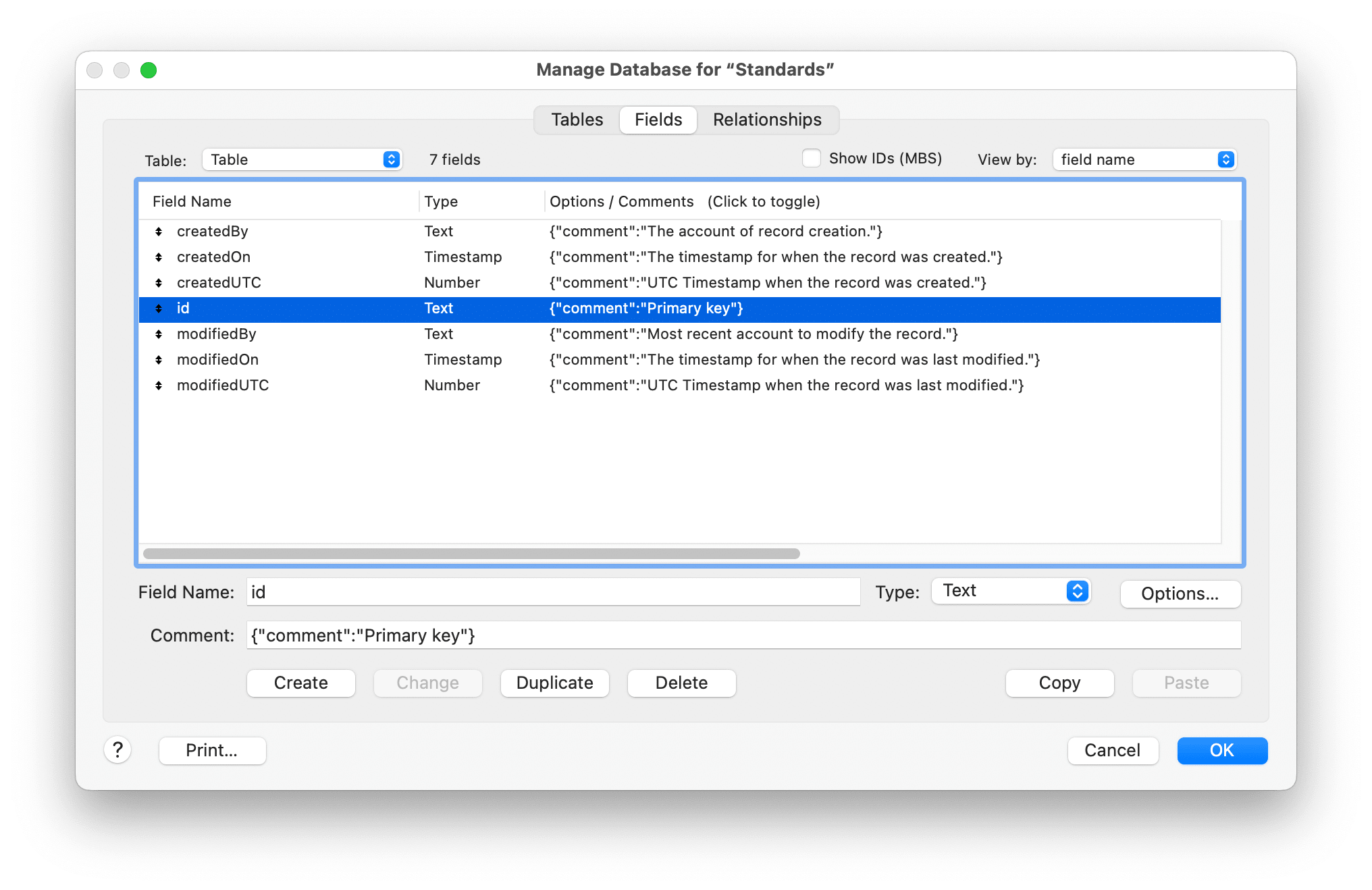¶ JSON Field comments
All field comments are to be formatted as valid JSON. Even if the only supplied key/value pair is a comment itself, the advantages of the structure provided by JSON allows for tightly coupled metadata specific to the field. These include, but are not limited to.
- Internationalization of UI strings and labels.
- Field specific value list options. (alternatives to native Value Lists)
- Additional validation data specific to script validation.
- API specific field mappings for external system integration.

¶ Data retrieval
Field comment metadata can easily be retrieved for any given field using the following native function.
FieldComment ( fileName ; fieldName )
When combined with functions like
FieldNames ( fileName ; layoutName ) and/or
ExecuteSQL ( sqlQuery ; fieldSeparator ; rowSeparator { ; arguments... } )
Using the available internal SQL system objects (see page 35 of the Claris/FileMaker SQL-Reference.pdf) we have something like the following for a list of all fields within a given table.
Example custom function:
TableFields ( listOfFields )
ExecuteSQL ( "SELECT TableName + '::' + FieldName FROM FileMaker_Fields WHERE TableName='" & table & "'" ; "" ; "" )
JSON can be extracted and modified in a wide variety of ways within Claris/FileMaker.
¶ Structure conversion
Given that JSON is not the native structure for script variables, it's possible to use a simple custom function which will convert Claris/FileMaker's imposed JSON formatting structure via JSONFormatElements ( json ) into a valid Let() function. See JSONLetify (special nod to JavaScript's JSON.stringify() method)
¶ Examples
Here's an example of a JSON object which could be used as a field comment.
{
"comment" : "This is a comment about this field.",
"labels" :
{
"$@field_label_merge_variable" :
{
"de" : "Feld",
"en" : "Field",
"es" : "Campo"
}
},
"options" :
{
"de" : [ "Eins", "Zwei", "Drei", "Vier" ],
"en" : [ "One", "Two", "Three", "Four" ],
"es" : [ "Uno", "Dos", "Tres", "Cuatro" ]
},
"twilio_api" :
{
"number" : "800-555-1212",
"prefix" : "[Notice]"
}
}